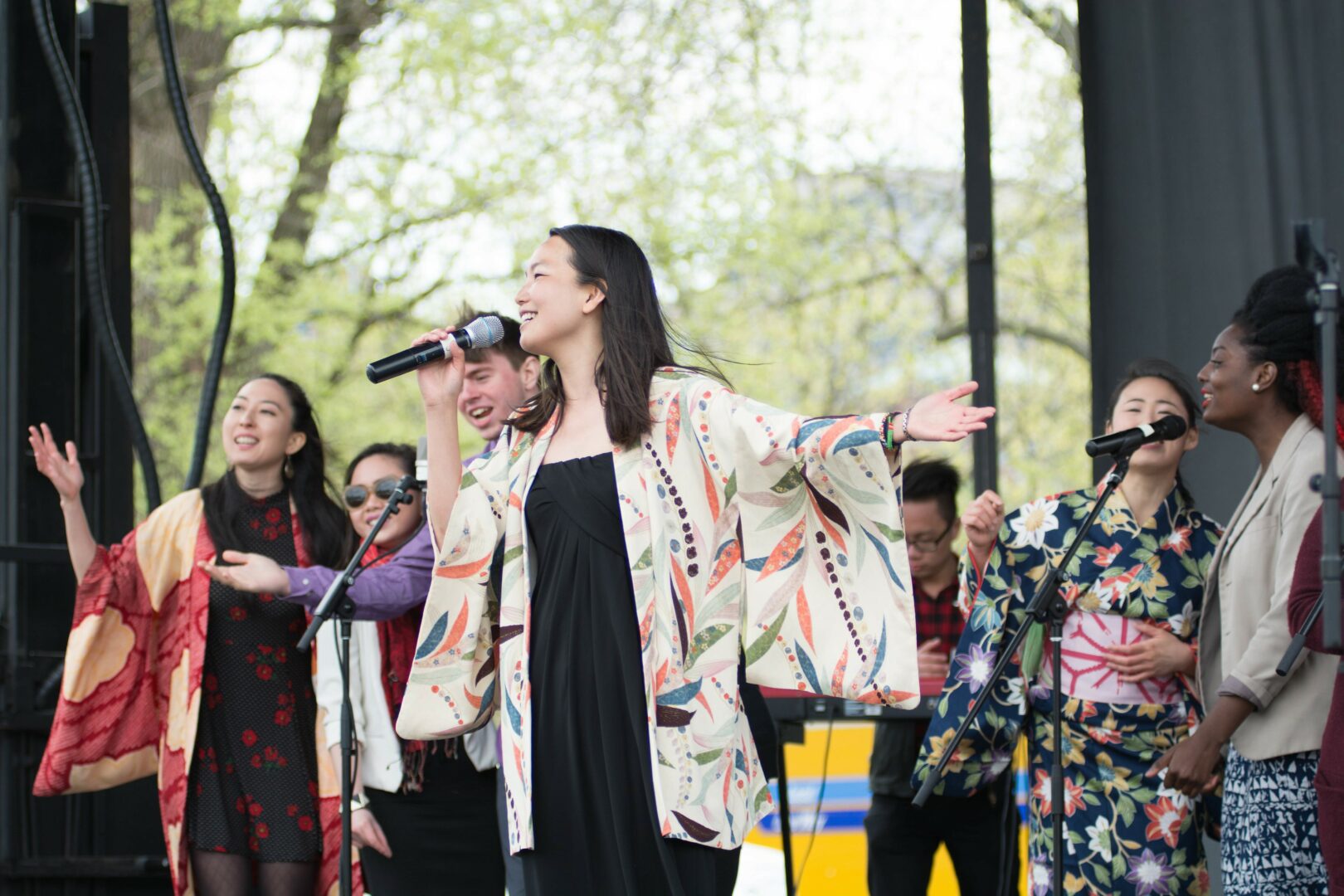We’re looking forward to introducing you to Utako Toyama. Check out our conversation below.
Good morning Utako, it’s such a great way to kick off the day – I think our readers will love hearing your stories, experiences and about how you think about life and work. Let’s jump right in? Are you walking a path—or wandering?
I think I’m exploring and learning.
Every project I’ve led, from SkyBridge to Songs for World Peace, began as a question rather than a plan. I rarely start with a clear map, but I always follow curiosity and empathy. Along the way, I’ve learned that exploration itself is part of the path.
I don’t believe there is only one direction to growth or peace. Sometimes wandering helps us notice connections we might have missed if we focused only on reaching a destination. My journey has always been about discovering new ways to bring people together through music and allowing that journey to shape the path ahead.
Can you briefly introduce yourself and share what makes you or your brand unique?
I’m a composer, artistic director, and educator originally from Osaka, Japan, now based in London. My work centers on using music as a bridge to connect people across cultures and to promote diversity, equity, and world peace by cultivating empathy through music.
I founded SkyBridge, a global collective band that brings together musicians from around the world under the slogan “We look different, we ALL smile the same.” Through SkyBridge, I’ve collaborated with artists from 46 countries. I also co-founded Songs for World Peace (SWP), an international initiative that has involved artists from about 90 countries, each creating original songs about peace in their own languages. Altogether, I’ve collaborated with musicians from more than 100 countries through these projects.
In 2025, I co-directed The Global Choir for World Peace at EXPO 2025 Osaka, where musicians from around the world connected online to perform live together in real time. It was a major step in realizing the Online Global Choir vision that I had been developing and prototyping for years, both personally and through SWP.
Building on the SkyBridge Japan Tour, where I led Spontaneous Composition Ensemble workshops and concerts at five music schools across Japan, I continue to expand projects that use collaborative and improvisational music-making as tools for inclusion, empathy, and intercultural learning.
Appreciate your sharing that. Let’s talk about your life, growing up and some of topics and learnings around that. What’s a moment that really shaped how you see the world?
There have been many moments in my life that opened my eyes, but one of the most meaningful came from my mother’s gentle guidance when I was learning how to see people different from myself.
When I was a child, I once saw a person walking with difficulty, dragging one leg along the street. I turned to my mother and said, “That person looks so pitiful.”
She paused for a moment and asked softly, “Do you think your grandmother is pitiful?”
My grandmother had lived with severe rheumatoid arthritis for decades. She could not walk without crutches and often spent long periods in bed. Yet to me, she wasn’t someone to pity. She was simply my beloved grandmother, warm, kind, and strong.
I shook my head. “No, she’s not pitiful.”
My mother smiled and said, “That’s right. When I see people like that, I think they’re doing their best to live.”
That small exchange changed how I saw people. It taught me that empathy isn’t about feeling sorry for someone; it’s about seeing the strength, dignity, and humanity within them.
That simple lesson became a quiet seed in me, one that has continued to grow throughout my life and work. Whether through SkyBridge, Songs for World Peace, or the Global Choir projects, what guides me is the belief that beyond all differences, there is always connection, respect, and hope.
When did you last change your mind about something important?
Rather than changing my mind, I would say that over the past few years I’ve been refining and deepening my understanding of how I use my voice. Around the world, many people are raising their voices against inequality and injustice, and I’m deeply moved by their courage and conviction. At the same time, I began to ask myself what the most effective way for me to contribute to peace might be.
There have been times when people asked me, “Why don’t you speak out more?” I understand that speaking out can be the most powerful and necessary action in certain moments. Each of us stands in a different position and carries unique strengths, and I believe that the most effective approach to peace can look different for everyone. For me, with my particular background and experiences, I realized that my best and most meaningful contribution is not only to express my opinions but to create spaces where people can truly listen to and understand one another.
Through music, I can bring people together to sing, feel, and reflect collectively. That experience, I believe, leaves a deeper and more lasting impression than trying to persuade through words alone. Over time, I’ve learned that real strength doesn’t come from how loudly we speak, but from how deeply we listen. My focus is on cultivating environments of dialogue and empathy. That, to me, is a quiet yet powerful form of leadership.
I live by the phrase “Keep your heart warm, and your head cool.” That balance guides how I make decisions and how I lead. Justice can look different depending on one’s position or the times we live in. But when justice starts to be defined by “who commits the act” instead of “the nature of the act itself,” it risks turning into a matter of power and politics rather than conscience and principle.
I don’t want my music or my work to be influenced by such shifting perspectives, nor do I wish for them to be used for political or ideological purposes. That’s why I choose to focus on connecting voices across cultures and generations for something universal, something that transcends sides and eras.
Music has the power to foster empathy and understanding beyond opinions. That, to me, is what calm passion looks like, and it is the path I continue to follow toward peace.
So a lot of these questions go deep, but if you are open to it, we’ve got a few more questions that we’d love to get your take on. What’s a belief or project you’re committed to, no matter how long it takes?
I believe that music is one of the most profound ways to connect deeply with others. Through the sharing of emotions in music, we cultivate empathy, and empathy can change how people see one another.
When I first entered Berklee College of Music, I could hardly speak English. Berklee felt like a United Nations for musicians, a place where people from all over the world gathered to create together. As I collaborated with classmates from different countries, something magical happened: music made friends for me.
Once I had friends across the world, international news no longer felt distant. Every headline had a face, a family, a story I cared about. The same piece of news that once seemed far away suddenly became personal. There was a world directly connected to my own life, a world that felt real, emotional, and human.
That experience became the foundation of my lifelong belief that empathy can be taught, and that music is one of its most powerful teachers. I don’t think this experience is unique to musicians like myself. I believe it can happen to anyone.
Through SkyBridge, I collaborate with musicians from diverse countries to perform my original songs about peace, hope, and friendship through interactive concerts, workshops, and even flash mobs, inviting audiences to join in and experience human connection beyond borders.
Through Songs for World Peace (SWP), I serve as Co-Founder and Executive Director, curating and sharing original songs written by artists from about 90 countries, each expressing their own vision of peace through their native languages and cultural perspectives. Every song is a sincere reflection of what peace means in its own cultural and social context, and together, these songs remind listeners that there are countless ways to express peace, but the desire for peace is universal.
The Online Global Choir is another project born from this vision of connecting people through empathy and music. It uses technology to make international collaboration accessible to everyone. Even if someone cannot travel or study abroad for economic, physical, or personal reasons, they can still rehearse, perform, and build friendships with people around the world through music. I see this as a way to use technology not just for convenience, but for empathy.
We live in an age where we can learn about anything happening across the globe with just one click. Yet war and discrimination still persist. I believe that’s because our moral and emotional development has not yet caught up with our technology. True empathy must be cultivated, and for me, the Online Global Choir exists to use technology as a bridge to nurture empathy in an inclusive, human-centered way.
There are days when the world feels unbearably painful, when the news is filled with cruelty and sorrow, and peace seems like a light too far to reach. But even then, I feel the pain of my friends across the world as something close to me. That shared pain, and the joy of the moments we’ve experienced together, continues to be the driving force behind my work.
Moving forward, I hope to work more closely with cultural and educational institutions, peace organizations, and international communities, sharing this mission as a form of cultural diplomacy. However long it takes, I’ll keep creating moments where people can see each other not as strangers, but as part of one human family connected through music.
Okay, we’ve made it essentially to the end. One last question before you go. If you laid down your name, role, and possessions—what would remain?
When I teach music, I often feel that the world is one big classroom — a place where we are all learning how to understand one another.
In that classroom, I’ve learned an important truth. Imagine one student bullying another. The class agrees it’s wrong. But later, the student who was once the victim begins to bully someone else. If the class believes that bullying itself is wrong, they can stop it. But if they only see that student as a permanent victim, the cycle never ends.
I think the same principle applies to war and other kinds of violence. That’s why I believe strongly in the idea: hate the sin, not the person.
I truly hope that the violence we see today will end soon. More importantly, I hope we can build a future where people do not carry hate, but learn from these tragedies so they are never repeated.
If I let go of all my roles and achievements, what remains is my belief that understanding and empathy can prevent the cycle of hate — and that music can help people see each other with humanity again.
Contact Info:
- Website: https://www.utakotoyama.com/
- Instagram: https://www.instagram.com/utakomusic/
- Linkedin: https://www.linkedin.com/in/utako-toyama-b21975161
- Twitter: https://x.com/UtakoMusic
- Facebook: https://www.facebook.com/UtakoMusic/
- Youtube: https://www.youtube.com/@utakotoyama
- Soundcloud: https://soundcloud.com/utako
- Other: https://www.youtube.com/@skybridgemusic
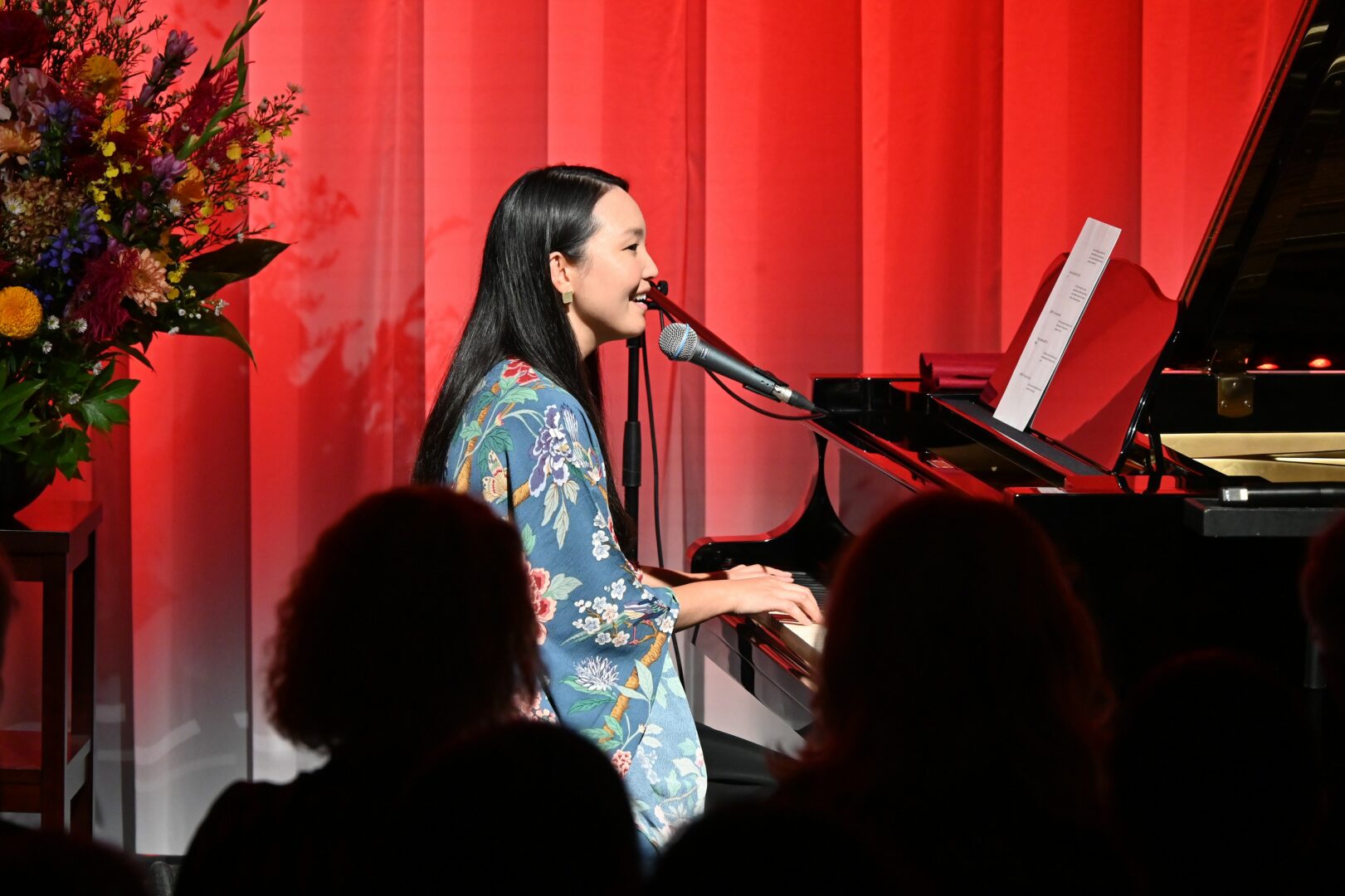
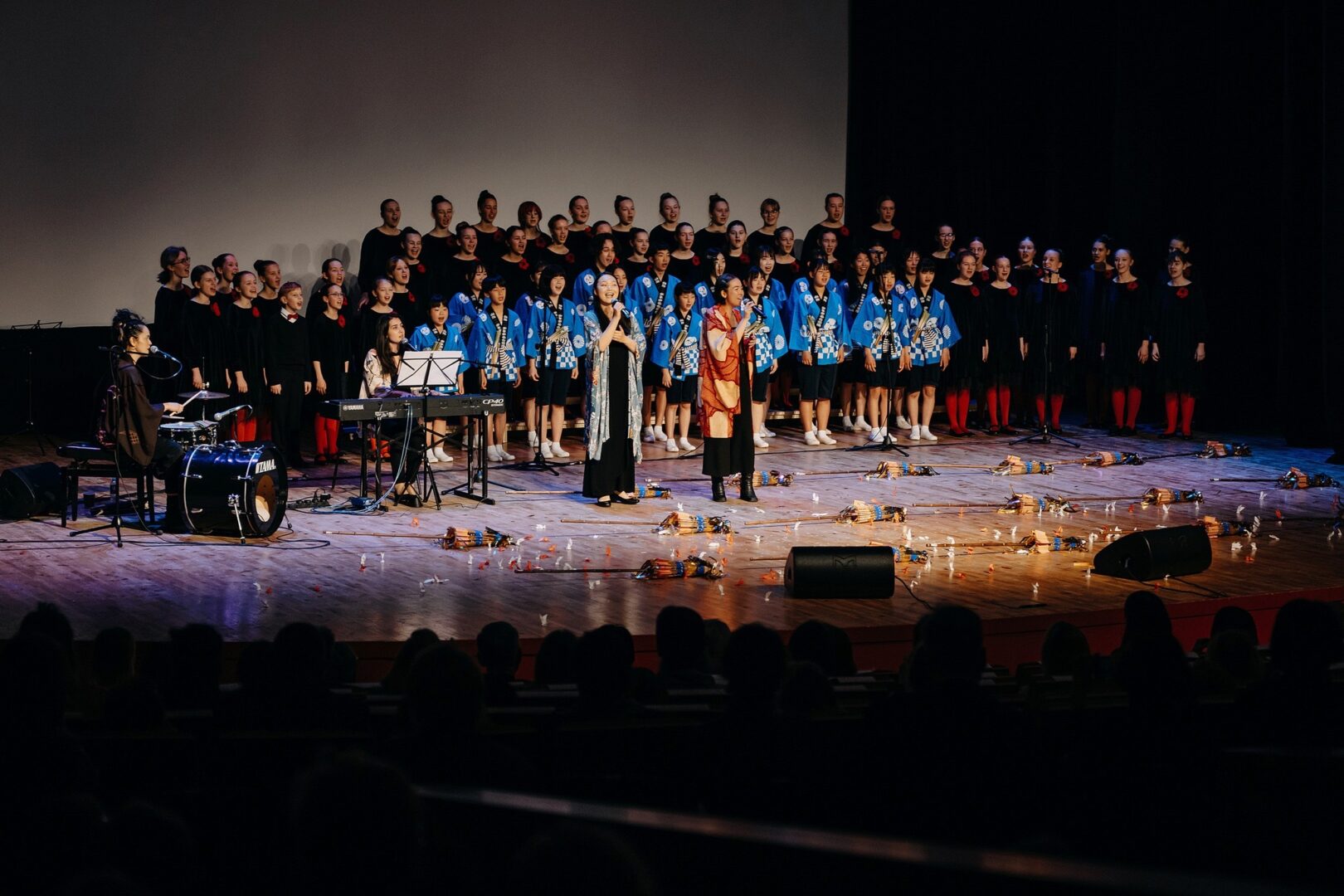
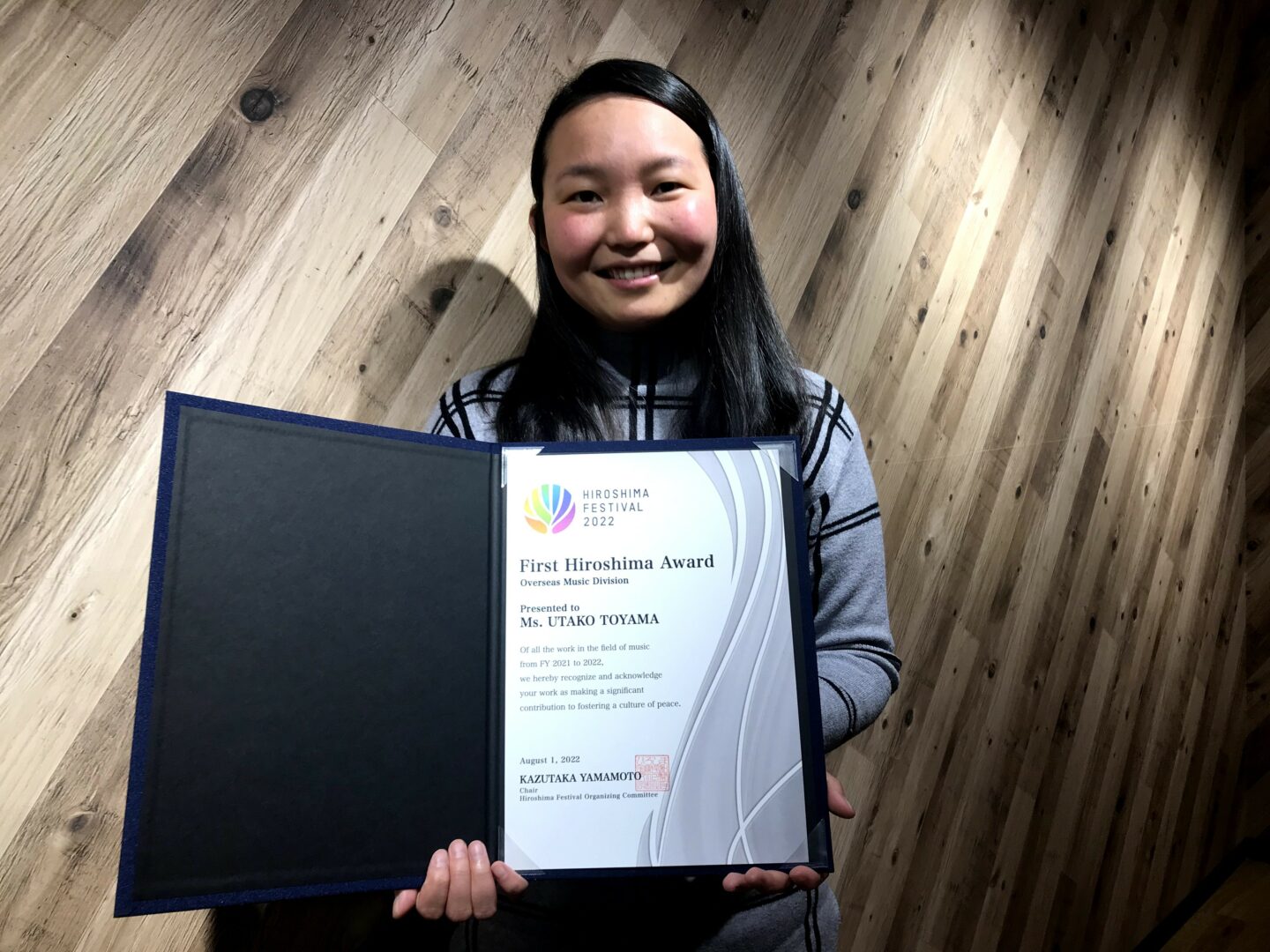
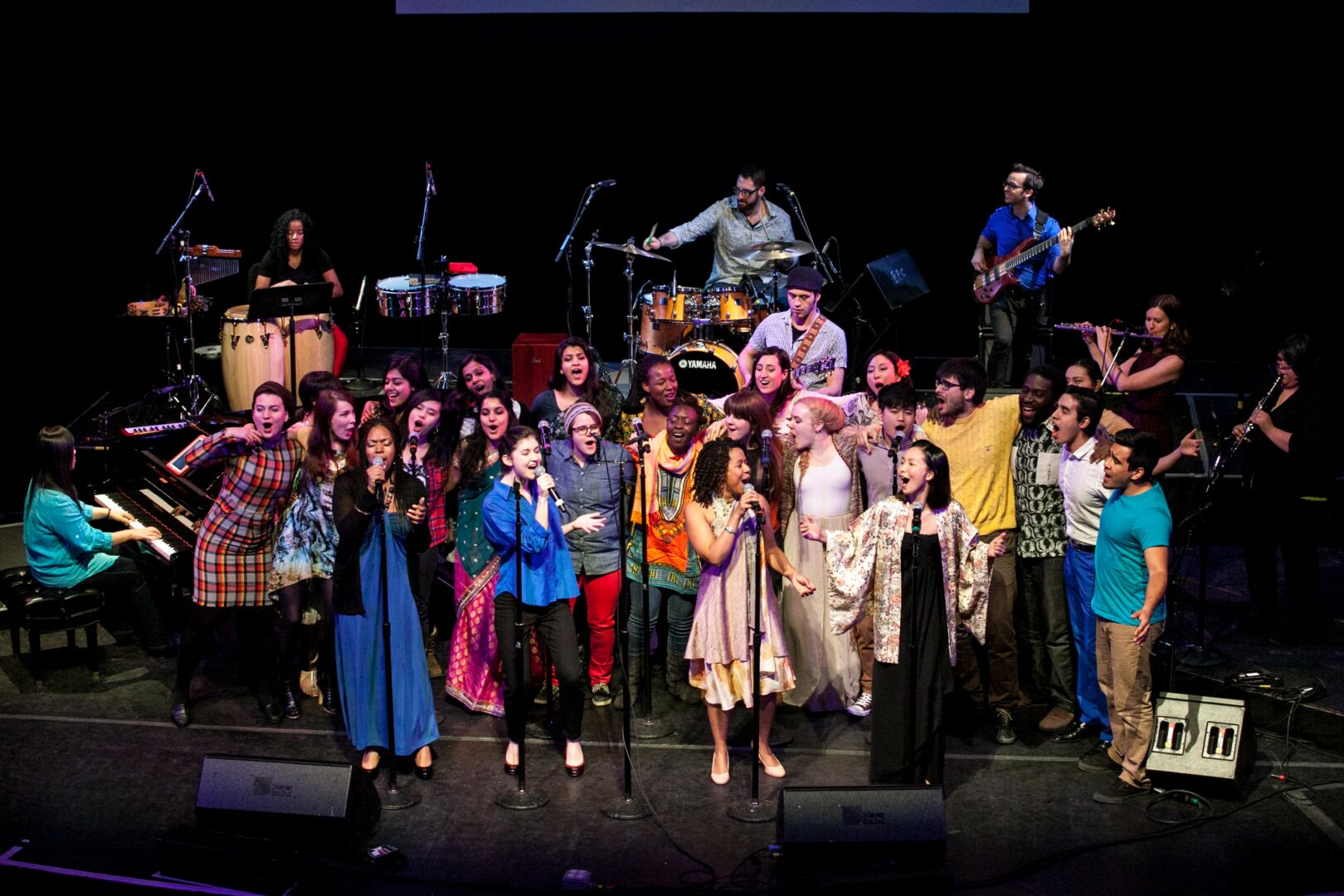
Image Credits
Personal Photo: by Dai Haraguchi
Red background photo: by Min-on Concert Association
Photo with children’s choir: by Martynas Plepys
so if you or someone you know deserves recognition please let us know here.

